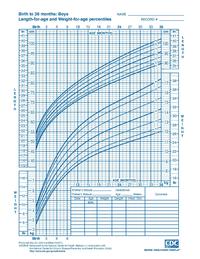
Photo from wikipedia
Objectives Growth hormone (GH) therapy’s capacity to increase height velocity and height at the end of the study in children with idiopathic short stature (ISS) is controversial. We aimed to… Click to show full abstract
Objectives Growth hormone (GH) therapy’s capacity to increase height velocity and height at the end of the study in children with idiopathic short stature (ISS) is controversial. We aimed to investigate the height standard deviation score (SDS) and height velocity of patients with ISS in Korea who received GH treatment. Methods We retrospectively reviewed and performed linear mixed model and survival analyses on data from 12 tertiary hospitals in Korea, including subjects diagnosed with ISS from January 2009 to September 2019, treated with GH therapy for more than 6 months, and who were at a pre-pubertal state at the time of diagnosis. Results We included 578 children (330 boys and 248 girls). The mean daily dose of GH in this study was 0.051 mg/kg, which was lower than the approved dose in Korea of 0.062 - 0.067 mg/kg. Height SDS was higher in patients who started treatment before the age of 6 years. The probability of reaching the target SDS (-1 SDS) from the beginning of treatment to 2–3 years after its start was higher in children starting treatment before the age of 6 years. The hazard ratio to reach the target SDS (-1 SDS) when using automatic pen or electronic devices was 1.727 times higher than that when using the needle and syringe device. Conclusion ISS patients should start GH treatment at an early age, and even lower-than-recommended drug doses may be effective. The selection of automatic pen or electronic device can have a positive effect on reaching the target height SDS.
Journal Title: Frontiers in Endocrinology
Year Published: 2022
Link to full text (if available)
Share on Social Media: Sign Up to like & get
recommendations!